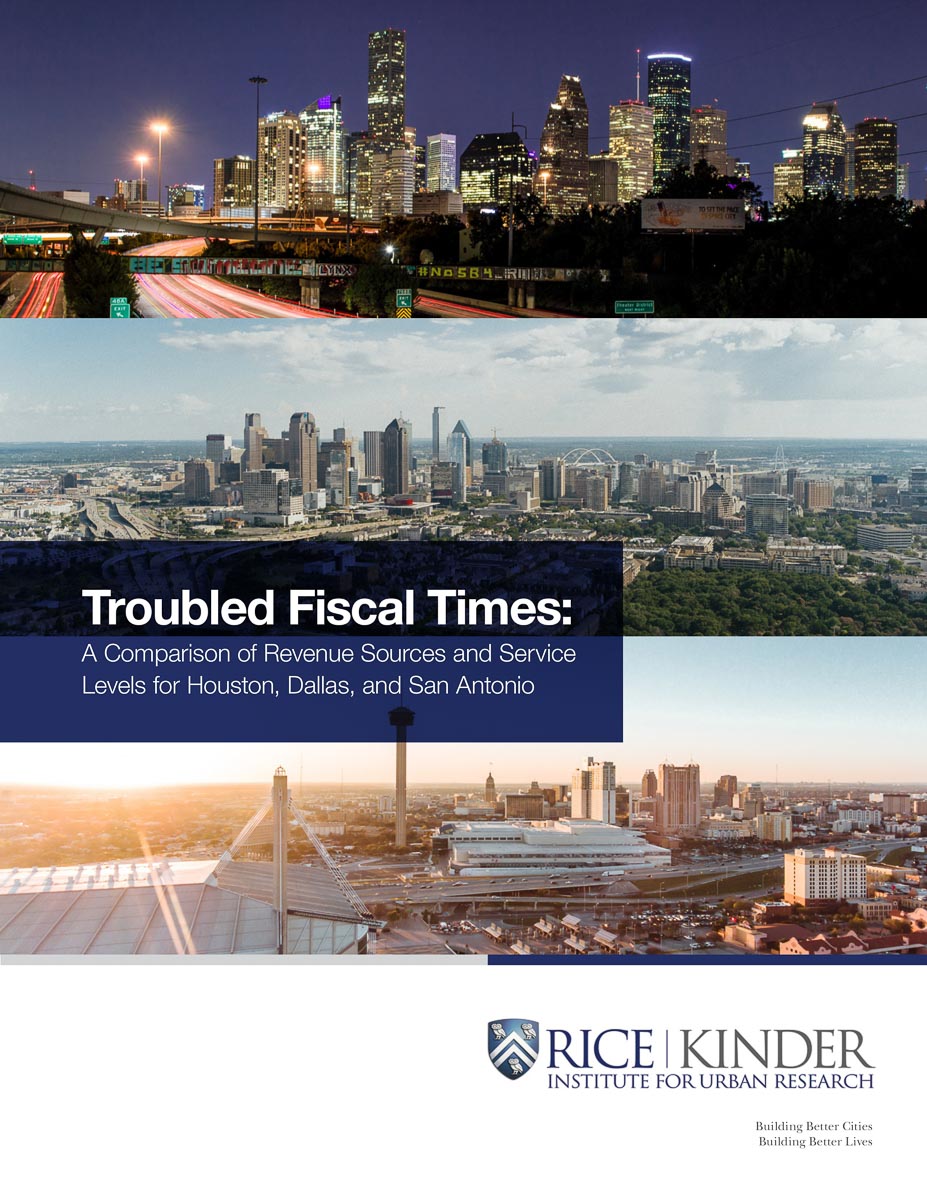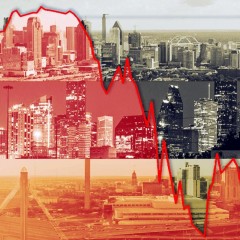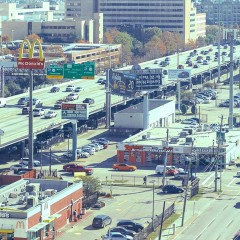This report examines the revenue structure and service levels for Texas' three largest cities: Houston, San Antonio and Dallas. The report examines differences in the cities’ revenue structures — and whether any one of the three is unusually constrained — while at the same time exploring how their revenue is used to provide services, especially in four key areas: police, fire, parks and solid waste. Most of the research was conducted before the COVID-19 crisis, however, the report incorporates as much information about the impact of the related economic downturn as possible.
Key findings include:
- Revenue losses related to COVID-19 will make it impossible for the three cities to maintain current levels of service.
- Based on the past experience of major cities during recessions, the three cities likely will focus on providing police and fire services. Parks services, in particular, may be vulnerable to budget cuts.
- Several factors do, in fact, constrain Houston’s ability to provide public services compared to the other cities. These include the locally imposed revenue cap, the lack of a solid waste collection fee, the fact that the city maintains its own health department and the sequestering of general fund revenues for public works under ReBuild Houston. The first two factors constrain the city’s revenue while the second two factors help to dictate the allocation of financial resources.
- The state’s property tax reform law, adopted in 2019, likely will constrain Dallas and San Antonio in the future in a manner similar to the way Houston currently is constrained by its local revenue cap. However, the impact is likely to be delayed because the state-imposed property tax cap can be waived when a disaster is declared.






